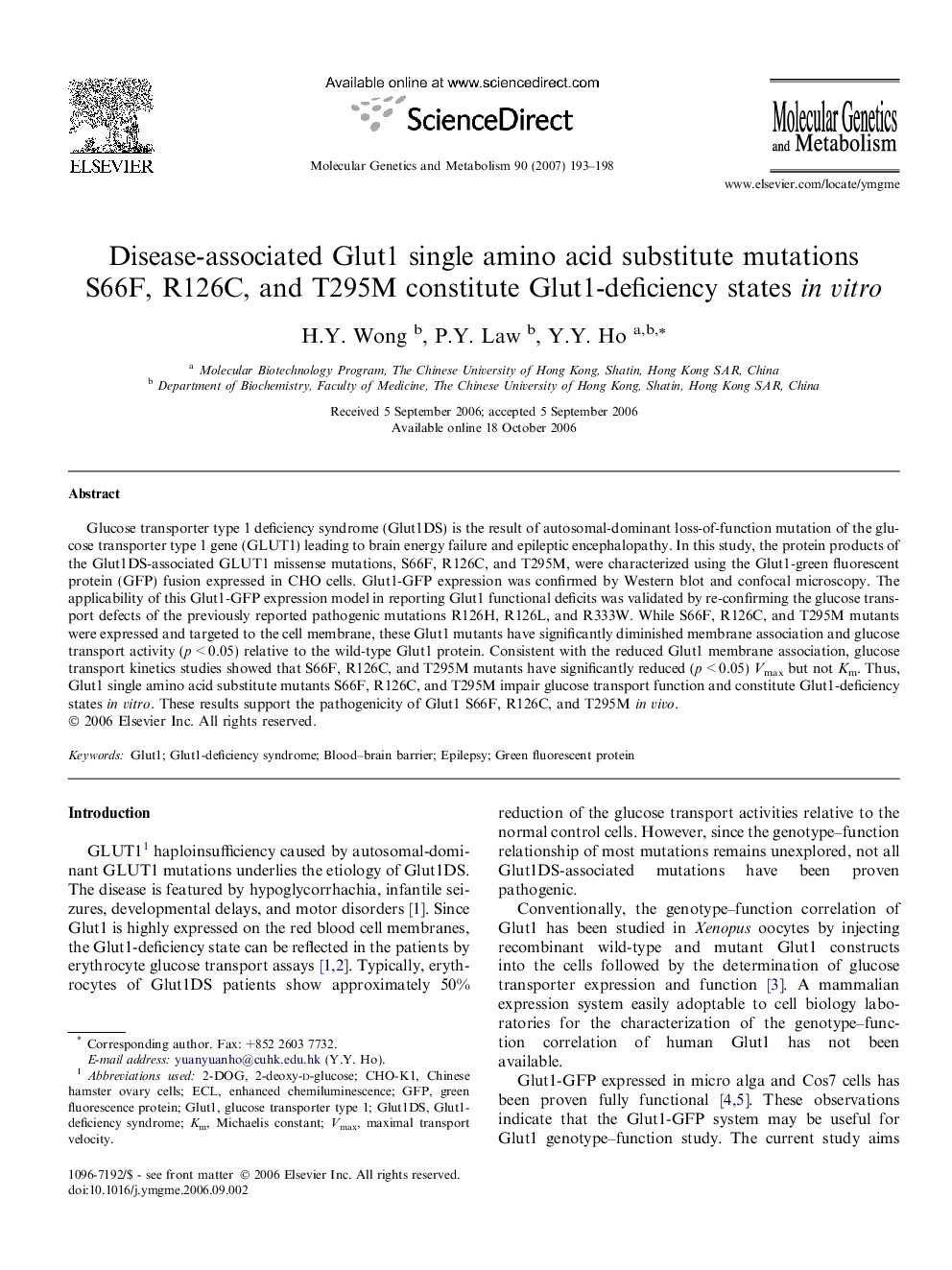| Article ID | Journal | Published Year | Pages | File Type |
|---|---|---|---|---|
| 1999042 | Molecular Genetics and Metabolism | 2007 | 6 Pages |
Glucose transporter type 1 deficiency syndrome (Glut1DS) is the result of autosomal-dominant loss-of-function mutation of the glucose transporter type 1 gene (GLUT1) leading to brain energy failure and epileptic encephalopathy. In this study, the protein products of the Glut1DS-associated GLUT1 missense mutations, S66F, R126C, and T295M, were characterized using the Glut1-green fluorescent protein (GFP) fusion expressed in CHO cells. Glut1-GFP expression was confirmed by Western blot and confocal microscopy. The applicability of this Glut1-GFP expression model in reporting Glut1 functional deficits was validated by re-confirming the glucose transport defects of the previously reported pathogenic mutations R126H, R126L, and R333W. While S66F, R126C, and T295M mutants were expressed and targeted to the cell membrane, these Glut1 mutants have significantly diminished membrane association and glucose transport activity (p < 0.05) relative to the wild-type Glut1 protein. Consistent with the reduced Glut1 membrane association, glucose transport kinetics studies showed that S66F, R126C, and T295M mutants have significantly reduced (p < 0.05) Vmax but not Km. Thus, Glut1 single amino acid substitute mutants S66F, R126C, and T295M impair glucose transport function and constitute Glut1-deficiency states in vitro. These results support the pathogenicity of Glut1 S66F, R126C, and T295M in vivo.
